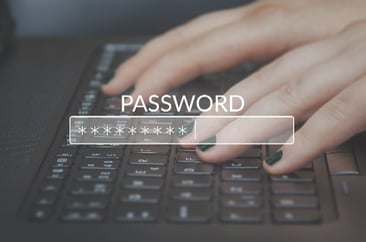 Passwords can be just as annoying as they are necessary, and most of us are probably all too familiar with the never-ending "forgot password, reset password, forget new password, repeat process" saga. Leveraging a password manager will not only keep your information secure, but also make it easier to keep track of the sheer number of passwords you need these days. With these benefits in mind, everyone should consider using a password manager to keep his or her online information protected and secure.
Passwords can be just as annoying as they are necessary, and most of us are probably all too familiar with the never-ending "forgot password, reset password, forget new password, repeat process" saga. Leveraging a password manager will not only keep your information secure, but also make it easier to keep track of the sheer number of passwords you need these days. With these benefits in mind, everyone should consider using a password manager to keep his or her online information protected and secure.
What is a Password Manager?
A password manager helps you create strong, complex passwords for all of your online accounts and stores them securely for later use. All passwords created by a password manager are stored in one location and protected by a master password, and this master password is something you will create and is the only password you will need to remember to access your passwords stored in the manager. In terms of security, nearly all password managers use two-factor authentication that requires you to confirm your password manager account login via two different methods, typically by a master password and a code sent to a device.
Why Do I Need One?
Using a password manager is one of the most important things you can do to protect yourself and your sensitive, personal financial information online. If any of your passwords are weak and easy to guess, if you use the same or similar passwords across multiple sites, or if any of the sites you use are hacked and your account is compromised, you are putting unnecessary risk on your data. If you reuse passwords, there is a good chance that your passwords are already circulating in a hacker’s database. Using the same password or slight variations of the same password (e.g. switching the numbers on the end) means that a hacker has easy access to all of your information on the various sites that same password is used.
How Do Password Managers Work?
Password managers generate strong, formidable passwords when you create a new account or change or update a password for a current account, and these managers store all of your passwords in one place under lock and key of a single, strong master password. As stated above, your master password is the only password you have to remember to access and use all other passwords you store in your password manager. Your password manager will also store all usernames for sites. To use your username and password for a certain site, all you need to do is go to that site, and once you click in the space to fill in your username and password, you will see a dropdown option from your password manager. As long as you are already signed into your password manager, you can simply click on the hidden data populating from your password manager and easily log in to the site you want to access. Put simply, if you remember your master password to log into your password manager, the software will remember everything else and will fill automatically fill in your username and password for sites included in your password manager.
Many web browsers already save your log-in information and auto-fill your usernames and passwords for you, but this system typically puts the responsibility of creating a strong password on you. Password managers take this a step further and create robust passwords for you. These managers will also alert you to any weak or duplicate passwords you have and generate new ones for you. Almost all password managers also have mobile apps, so you can easily access and use your secure passwords across your devices.
How Safe Are Password Managers?
Almost all password managers are zero-knowledge platforms, which means the information stored in your password manager account is only accessible by you, the user. Zero-knowledge architecture means there is nothing to hack because all encryption is done in your device. Zero-knowledge platforms store your passwords and personal information locally on your device encrypted with 256-bit Advanced Encryption Standard (AES) encryption keys, the same encryption system used by the U.S. government and military. Your data is never available to the password manager company or any outside party, and additionally, only you know the master password needed to unlock your account and use the usernames and passwords stored in it.
This structure of password managers means that these platforms are arguably safer than companies that store their customers’ data and passwords. With password managers, since each password is encrypted on your device, the password manager does not actually keep a list of your passwords. In other words, if the password manager company gets hacked, none of your passwords can be stolen because the company does not actually keep a list of or store any of your passwords.
Final Points
Password managers mean no more forgotten or lost passwords, and, most importantly, no more worry about having your online financial accounts hacked or compromised. Password managers allow users to generate as many complex passwords as they need and lock those passwords securely behind one master password. There are countless options for password managers out there, and some charge a fee, while others are free. Most of the top password managers offer free plans that are perfectly sufficient for the average user with some plans that offer more advanced security features that come with a charge.
Overall, using a password manager is better than not using one, so do not fall victim to analysis paralysis when looking at the options. When deciding on a password manager to use, it is always prudent to go with one that is widely used and trusted with no record of security issues or concerns. Look for platforms that are easy to use and have a strong offering of features for a reasonable price. If you opt for a higher-level one that comes with a charge, remember that paying for a password manager is an investment in your financial security that is well worth the small fee for your peace of mind.
